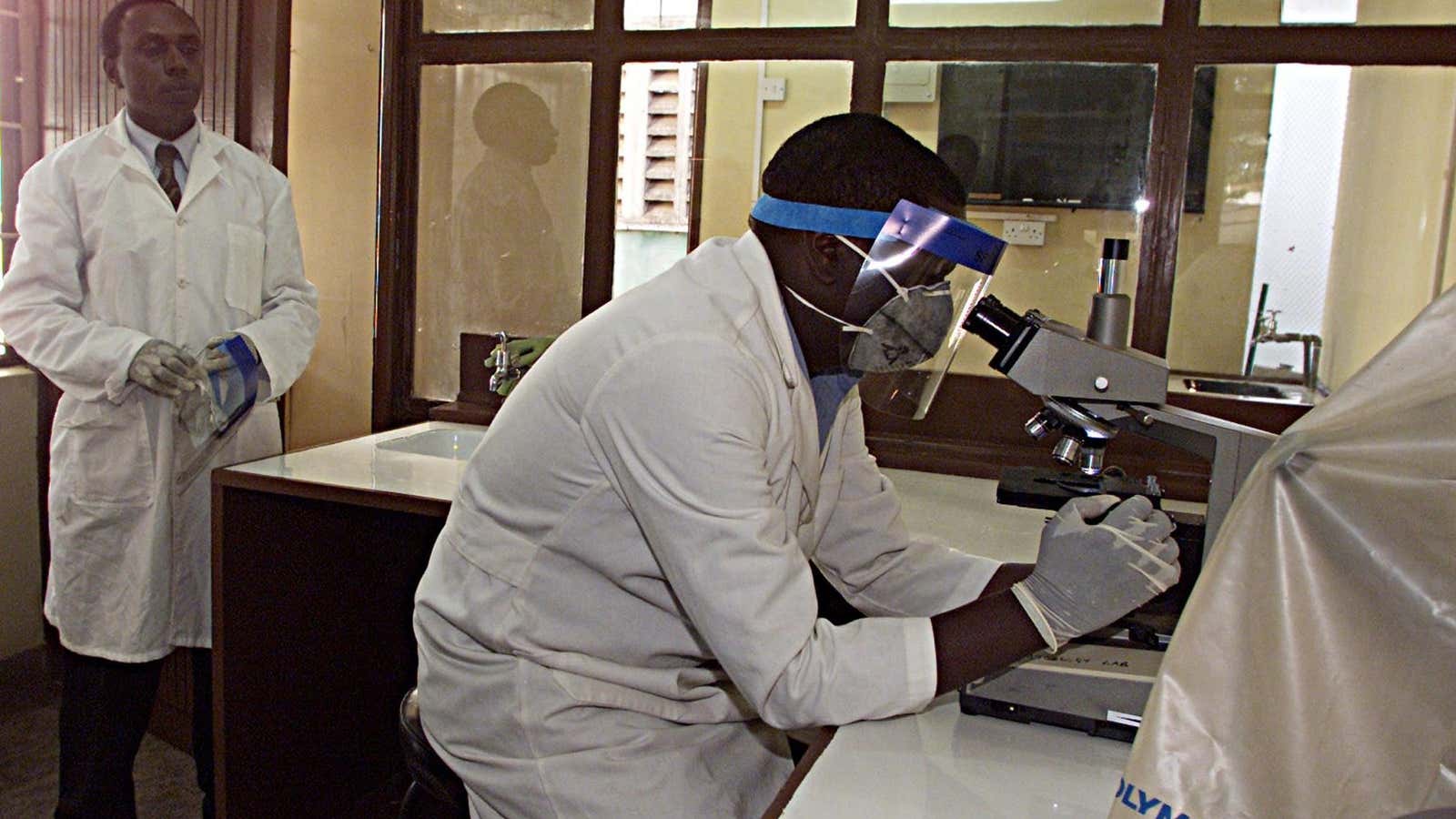Correction: An earlier version of this story had specific figures for early R&D plans but those figures were not specific to R&D and have been removed.
Scientists in Africa, who have long complained of poor funding and weak policy support for their research see an opportunity to convince governments and the private sector of a need to prioritize their R&D in the wake of the Covid-19 pandemic.
The African Academy of Sciences (AAS) has already raised the first batch of funds and is currently working with the African Union (AU) to establish a template that will improve R&D funding across the continent. Back in 2006, African Union member countries committed to spend at least 1% of their GDP on R&D by 2010, but few countries have come close. South Africa, the continent’s most advanced economy, spent about 0.82% of GDP from 2015 to 2019. This compares with around 2.4% for OECD and 2.8% for the United States.
The Covid-19 pandemic has shown African governments the importance of having a strong research and development system as scientists are being relied on for knowledge on the disease and development of solutions for tests, treatments, and even to take leadership in the battle against the disease. However African scientists are not equipped like their counterparts in other regions to effectively carry out these responsibilities.
The lack of funding is hindering Covid–19 R&D across the continent with instances of activities in labs that are supposed to be engaged in medical research being limited to sample testing. In 2019, Africa accounted for 0.9 % of global R&D spending.
The AAS is concerned African R&D is overly dependent on funding from outside the continent and sees this pandemic as an opportunity to push for African countries to work towards realizing 2006’s 1% of GDP goal. “Most African researchers, depend on research funding from outside Africa for their work. This should never be the case,” says professor Nelson Torto, the executive director of AAS.
The AAS has started raising funds in collaborations with their partners which include Wellcome Trust UK, Bill and Melinda Gates Foundation, and Sida (Sweden). They have raised an initial amount of $3 million and are currently working with the AU to help scientists access funds established for the Covid-19 pandemic in the continent.
The push for funding by AAS started with a survey of 844 researchers on the continent to identify important Covid-19 R&D areas to be prioritized using it to develop an advisory for researchers and governments in the continent. It is already working with the AUDA-NEPAD, a technical agency of the AU to ensure all relevant policymakers and governments in the continent are carried along.
African ministers have already met to prepare a response to COVID-19 in terms of interventions in education, science and technology. They have recommended for the establishment of a mechanism for some of the funds that are established to fight pandemics to be used for R&D, according to professor Aggrey Ambali, the head of Industrialization, Science, Technology, and Innovation (ISTI) at AUDA-NEPAD. However, there was no clarity as to what kind of research should be funded.
“The priority-setting work of the AAS is the first step towards addressing such information gap and providing information that is required to plan for the scope of R&D to be funded, the amount of resources required and mobilization of the resources,” he says.
Dr. Moses Alobo, a co-chair of the AAS COVID-19 Response Committee emphasized the importance of the AAS project concerning North-South collaboration and improving the chances of African scientists attracting funds into the continent through research collaborations with Europe and the US.
“It is important to underscore what the African scientists have tried to do here. They have integrated the African Covid-19 priorities with global priorities,” he says. “By increasing the fidelity of the description of the African specific research needed for Covid-19 the African scientists have set a strong bargaining position with their colleagues in the North. It is a win-win for both North and South scientists”.
Both organizations say pushing this agenda will not be a one-time thing and are looking beyond the pandemic. Ambali explained, “this will start with Covid-19 and will serve as a template for planning and managing future pandemics and epidemics in terms of mobilizing domestic research and development on the continent.”
Sign up to the Quartz Africa Weekly Brief here for news and analysis on African business, tech and innovation in your inbox
